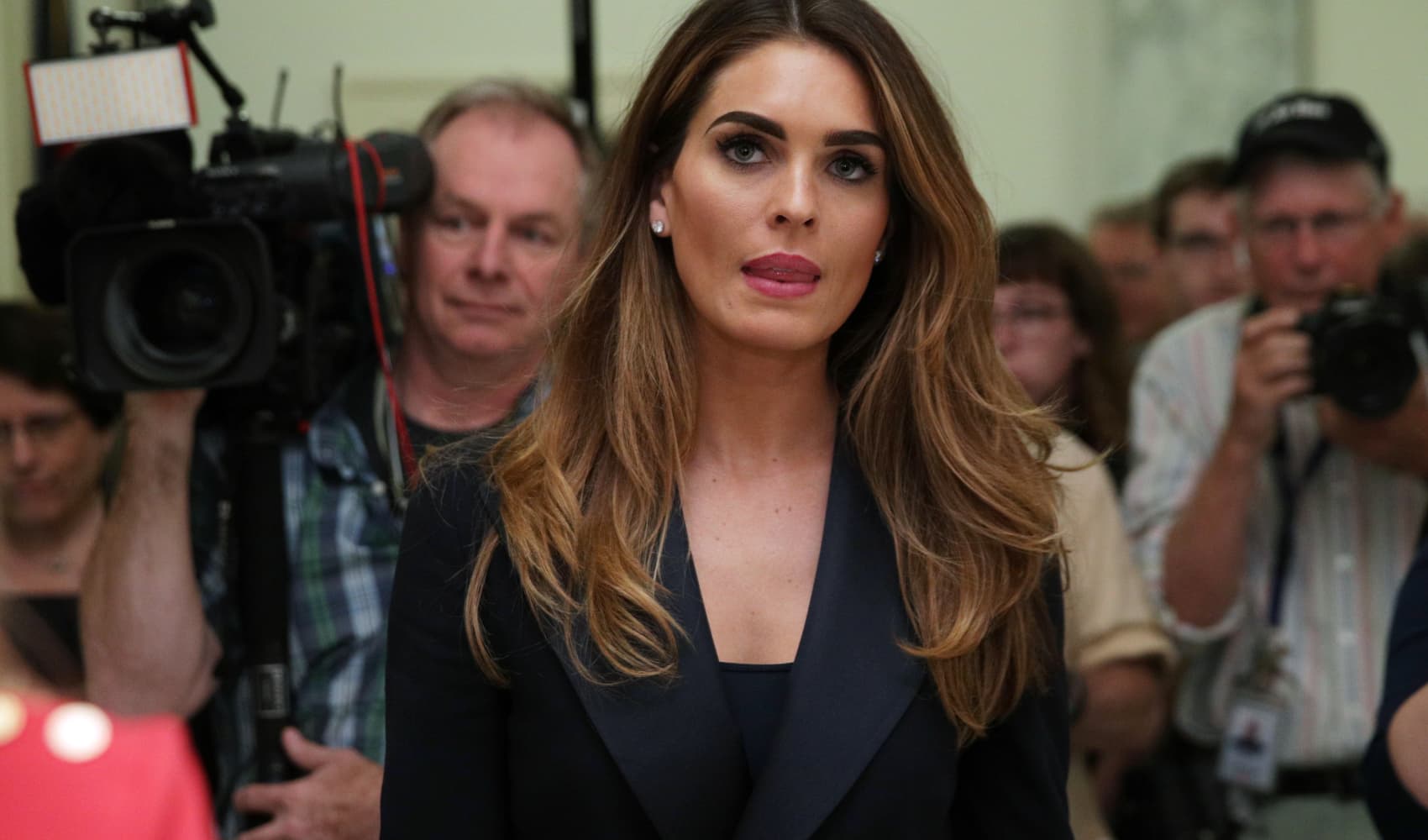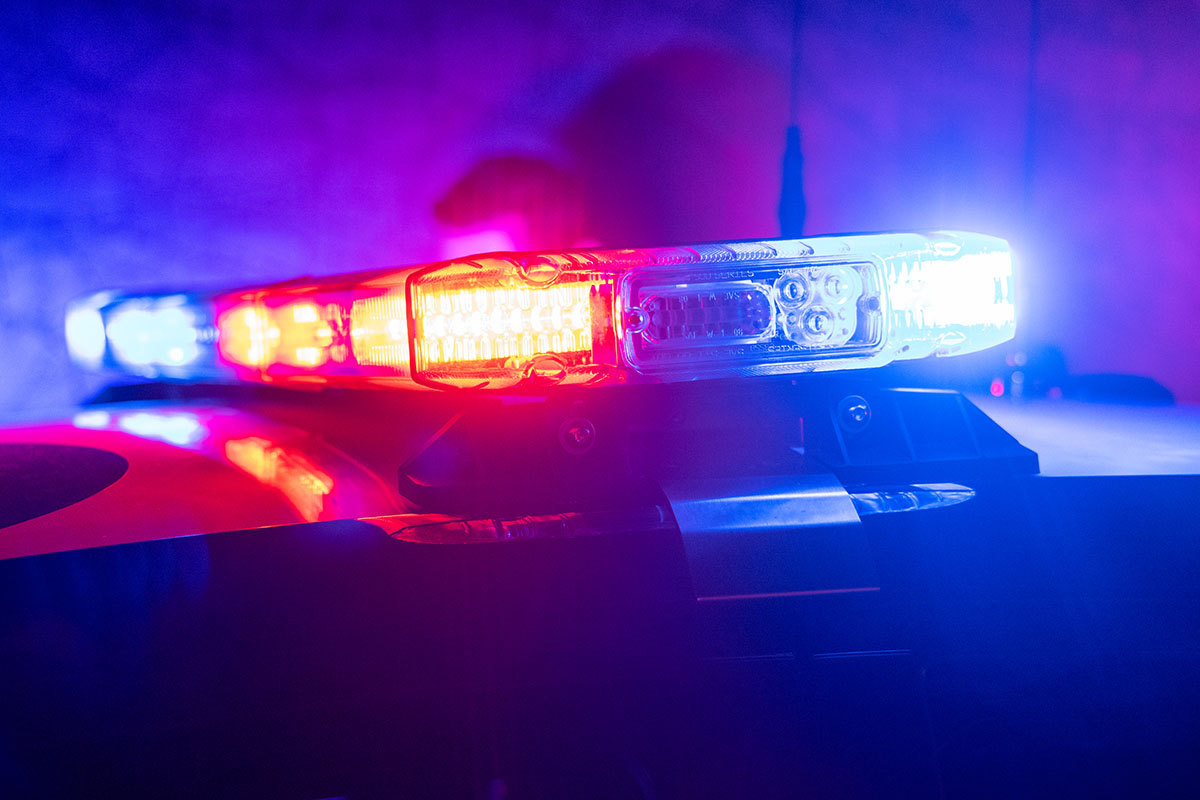Donald Trump shook his head in disgust Tuesday as the judge in his New York defamation trial told would-be jurors that another jury had already decided that the former president sexually abused a columnist in the 1990s. He left before opening statements where her lawyer accused him of using “the world's biggest microphone” to destroy her reputation.
Fresh from a political win Monday in the Iowa caucuses, the Republican presidential frontrunner detoured for about four hours to a Manhattan courtroom for what amounts to the penalty phase of a civil defamation lawsuit stemming from E. Jean Carroll’s claims he sexually attacked her in a department store dressing room in 1996. Trump left just after a jury of nine people was selected to attend a political rally in New Hampshire.
During his time in the Manhattan federal courtroom, Trump's lawyers first protested the trial itself, saying he wasn't being given a fair shake by Judge Lewis A. Kaplan and claiming that it was inappropriate for the trial to occur before appeals were resolved over legal issues.
Then, Trump expressed his displeasure through his gestures. For purposes of this proceeding, it had already been determined at a trial last year that Trump “did sexually assault Ms. Carroll,” Kaplan said, prompting Trump to shake his head from side to side. The ex-president was sitting at the defense table, flanked by his lawyers, about a dozen feet from Carroll and her legal team. They didn’t appear to speak or make eye contact.
Get Tri-state area news and weather forecasts to your inbox. Sign up for NBC New York newsletters.
Later, when the judge asked during jury selection if anyone felt he had been treated unfairly by the court system, Trump raised his hand slyly. The gesture drew laughter from some prospective jurors and a comment from the judge, who told Trump: “We know how you stand.”
After Trump left the courthouse, opening statements began, with attorney Shawn Crowley saying on Carroll's behalf that Trump must be held accountable for statements he made after she said publicly for the first time in a 2019 memoir that Trump had sexually abused her in the dressing room of a luxury department store a quarter century earlier.
Local
She said that Trump, while still president, “used the world’s biggest microphone to attack Ms. Carroll, to humiliate her” and to “tear her reputation to shreds.”
The lawyer said Trump launched verbal attacks over four days in June 2019, accusing Carroll of being a liar. “He said this from the White House … where presidents have signed laws, declared wars and decided the fate of the nation."
On Tuesday, Trump fired off a series of social media posts about the defamation case. Posting on his Truth Social platform, he wrote that Carroll’s rape allegation was an “attempted EXTORTION” involving “fabricated lies and political shenanigans.” He accused the judge of having “absolute hatred” for him.
Crowley told jurors their job was to answer the question: “How much money will it take to get him to stop?"
Trump attorney Alina Habba said the evidence will show that Carroll's career has prospered and she has been “thrust back into the limelight like she always has wanted.” She said Carroll's lawyers wanted to portray their client as someone whose reputation was ruined when “the evidence will show you something different.”
Testimony will begin Wednesday, when Carroll is expected to take the witness stand.
Trump did not attend the previous trial in the case last May, when a jury found he had sexually abused Carroll and awarded Carroll $5 million in damages. The jury said Carroll hadn’t proven that Trump raped her. In light of that verdict, Kaplan said the trial beginning Tuesday would focus only on how much money, if any, Trump must pay Carroll for comments he made about her while president in 2019.
As the day began, Kaplan rejected the defense's request to suspend the trial on Thursday so Trump could attend his mother-in-law's funeral — part of a combative exchange in which Trump's lawyers accused the judge of thwarting their defense with pretrial evidence rulings they contend were favorable to Carroll.
“I am not stopping him from being there,” the judge said, referring to the funeral.
Trump lawyer Alina Habba responded: “No, you’re stopping him from being here.”
Habba told the judge that Trump plans to testify. Kaplan said the only accommodation he would make is that Trump can testify on Monday, even if the trial is otherwise finished by Thursday. The judge previously rejected Trump’s request to delay the trial a week.
Trump sat attentively, glaring and scowling at times, as several dozen prospective jurors filed into the courtroom and spent more than an hour responding to questions posed by the judge covering everything from their prior involvement with the judicial system to their political beliefs.
He twisted around in his chair and nodded at two prospective jurors — a man and woman — who stood when asked if they agreed with his false belief that the 2020 election was rigged, and again when three people in the pool indicated they felt the former president was being treated unfairly by the court system.
The process offered a window into the political beliefs of a microcosm of New Yorkers, drawn from a pool that includes Manhattan and northern suburban counties. Some noted personal connections to Trump or his adversaries. One woman said she had done publicity for his daughter’s company. Another said her father provided moving services for some of Trump's buildings. Neither made the cut.
Jurors selected for the trial will remain anonymous, even to the parties, lawyers and judicial staff, and will be driven to and from the courthouse from an undisclosed location for their safety, Kaplan said.
Trump has increasingly made his courtroom travails — including four criminal cases — part of his run to retake the White House, positioning himself as a victim of partisan lawyers, judges and prosecutors and capitalizing on news coverage that accompanies his court visits. Last week, Trump attended closing arguments in the New York attorney general's fraud lawsuit against him — and ended up giving a six-minute diatribe after his lawyers spoke.
“I guess you’d consider it part of the campaign,” Trump told reporters last week.
Carroll, 80, plans to testify about the damage to her career and reputation that resulted from Trump’s public statements. She seeks $10 million in compensatory damages and millions more in punitive damages.
If Trump testifies, he will be under strict limits on what he can say. Because of the prior verdict, Kaplan has said, Trump cannot get on the witness stand and argue that he didn't sexually abuse or defame Carroll.
Trump is appealing and hasn’t paid any of that award, though he placed $5.55 million in escrow to cover the verdict and other costs in the event he loses his appeal. One issue that wasn’t decided in the first trial was how much Trump owed for comments he made about Carroll while president. That will be the new jury’s only job.
Trump, 77, has continued to maintain that he doesn't know Carroll, that he never met her at the Bergdorf Goodman store in midtown Manhattan in spring 1996 and that Carroll made up her claims to sell her book and for political reasons.



